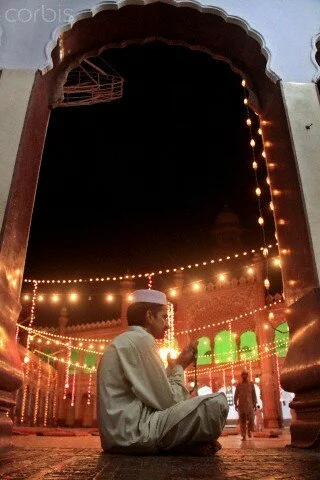RAMADAN: The Month of Fasting before the Feast
Ramadan is ninth month of the lunar calendar and is considered to be the holiest of all. In the light of several Quranic verses and ahadith it can safely be termed as “The month of blessings”. Muslims all around the world show great sanctity towards this month; they observe fasting throughout this month and bade farewell to it by Eid-ul-fitr, one of the two grand festivals of Muslim calendars. Historians say that the importance of Ramadan was present even before the arrival of Islam. The month was then called Natiq.
Ramadan is a month of special significance to Muslims because of a number of reasons. It is the month in which the holy Quran was revealed to the final Prophet of Allah and this is the month which is home to the Lail-at-ul-Qadar. Allah rewards believers seventy times more for a good deed than in any other month; the reward of Nafl prayer is raised to the reward of a Farz prayer and the reward of keeping a single fast in this month is more than the reward of keeping fasts in the entire year. Such are the blessings of God during this Holy month. To make things further convenient for believers, Allah orders to fetter the Satan and to close the doors of hell.
Ramadan is truly the month of spiritual purification as it provides every individual with a chance to purify him from the wrongdoings he commits during the entire year. Fasting in the month of Ramadan requires Muslims to practice self-restraint as Allah says in the Holy Quran “Fasting has been prescribed to you as it was prescribed to nations before you so that you may learn self-restraint“. This verse also suggests that fasting is an article inherited from the previous Sharias.
The month of Ramadan has been divided in three different decades. Ashra is the Arabic term for a decade (a period of ten days). Each decade has its own significance and its own purpose. The first decade is the decade of Mercy, the second decade is the decade of Forgiveness and the last decade is the decade for freedom from the hell fire.
At the end of Ramadan comes the day of Eid – the day of joy and celebrations – on the first of Shawwal, the month following Ramadan. Muslims are rewarded with this day as a reward of their profound worship during the holy month of Ramadan. Allah asks Muslims to celebrate the day of Eid with liveliness, joy and cheerfulness. However, He also orders them to look after the underprivileged on this day and to provide them money so that they can buy new cloths and share the happiness of the Eid day with rest of the society.


